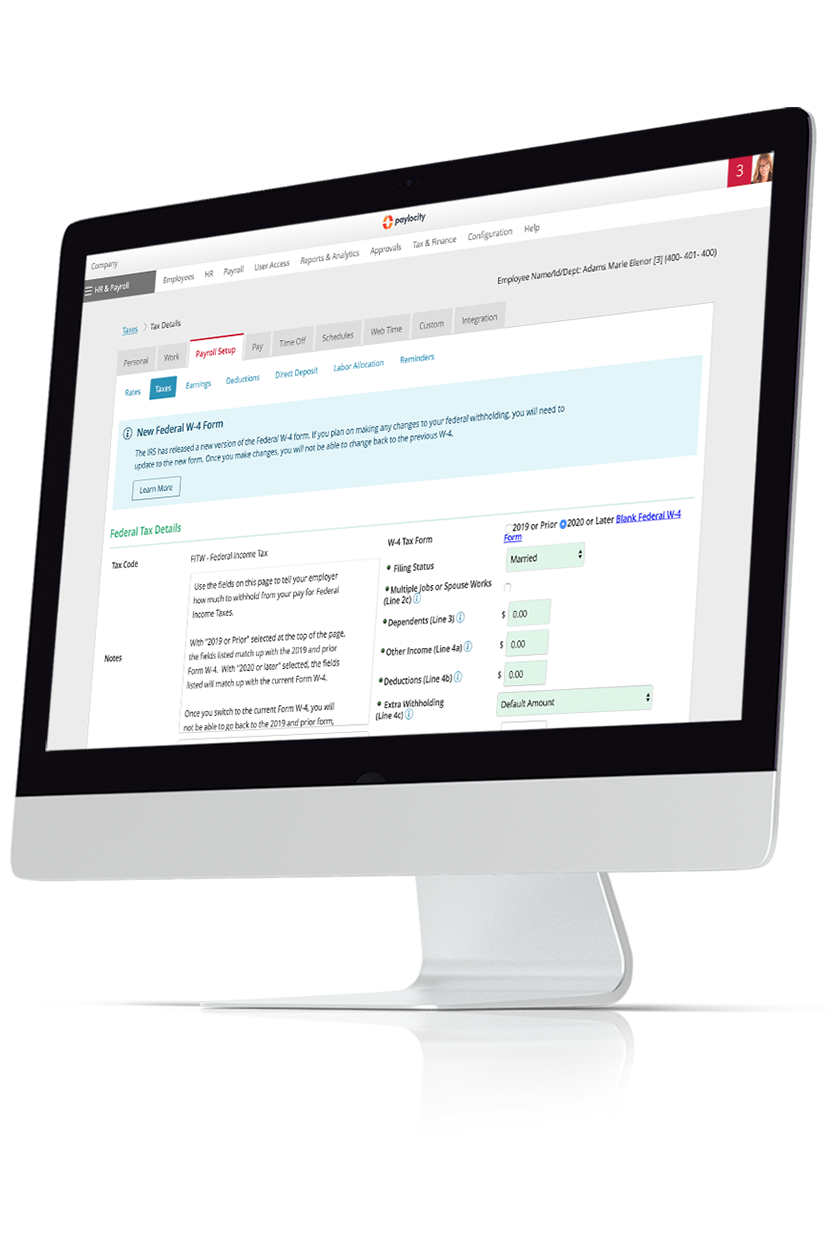Wyoming Payroll Tax Facts
January 15, 2025
Having to comply with unique state taxes and wage laws can make processing payroll doubly daunting. Here’s everything you need to know about these rates and laws for the state of Wyoming.

Wyoming state law uses a much lower minimum wage rate than the one required by the federal government in the Fair Labor Standards Act (FLSA). Therefore, any employer in Wyoming that's subject to the FLSA must use the federal minimum wage rate instead of the state’s rate.
When it comes to processing payroll, Wyoming-based organizations must handle the following taxes in addition to those required by the federal government:
The below information was last updated January 15, 2025. It is not intended as legal or tax advice.
Wyoming Payroll Tax Rates
Wyoming State Income Tax (SIT)
Wyoming is one of the few states that doesn't impose or collect a personal income tax.
Wyoming State Unemployment Insurance (SUI)
SUI provides unemployment benefits to eligible workers who are unemployed through no fault of their own (as determined by state law) and meet the state’s eligibility requirements.
|
Wyoming SUI Tax Details |
|
|
Taxable Wage Base |
$32,400 |
|
Employee Subject to Tax |
No |
|
Rates for Experienced Employers |
0.14% - 10.00% |
|
Rates for New Employers |
Varies by industry; 9.78% for new employers not classified in a specific industry
|
|
Effective Period |
Calendar Year |
|
Voluntary Contributions Allowed |
No |
Wyoming State Disability Insurance (SDI)
SDI benefits are funded by employees through mandatory payroll deductions from each paycheck. Wyoming, however, doesn't require employers to collect an SDI tax.
Wyoming Paid Sick Leave (PSL) Tax
The state of Wyoming doesn’t require employers to collect PSL taxes, nor does it have a program providing such leave to employees.
Wyoming Paid Family and Medical Leave (PFML) Tax
The state of Wyoming doesn’t require employers to collect PFML taxes, nor does it have a program providing such leave to employees.
Miscellaneous Wyoming Tax Information
Wyoming Reciprocal Agreement(s)
Reciprocal agreements are when workers who live and work in different states are only required to pay taxes to the state where they live. Wyoming currently has no reciprocal agreements with any other states.
This doesn’t mean, however, that interstate workers living in Wyoming pay double. It’s federally illegal for two states to tax the same income. In most cases, the employee’s work state will credit or refund them at tax time based on the taxes they owe their home state. If the tax rates differ, the employee must cover the difference.
Wyoming Minimum Wage Rates
|
Wage Type |
Wyoming Rates* |
Federal Rates |
|
Minimum Wage |
$5.15 |
$7.25 |
|
Tipped Minimum Wage |
$2.13 |
$2.13 |
|
Actual Tip Credit |
$3.02 |
$5.12 |
*Employers subject to the FLSA must instead use the federal minimum wage rates.
Paying Payroll Taxes in Wyoming
Wyoming Employer Registration
The Department of Workforce Services can help with your state-based employer registration, including best practices, account numbers, and unemployment information.
|
Registration Details |
Department of Workforce Services |
|
Phone |
(307) 235-3217 |
|
Online Registration |
WYUI Employer Registration |
|
Registration Instructions |
Online registration is available. Account numbers will be issued in 3-6 weeks via the online process or via mail. |
|
Employer Self-Service Login |
WYUI Login Page |
Additional Wyoming Payroll Tax Resources
- Unemployment Insurance Division Homepage
- Unemployment Insurance Division Forms & Documents Library
- Unemployment Insurance Division Resources Page
This information is provided as a courtesy and may be updated at any time. It is not intended as legal or tax guidance. If you have questions or concerns, we encourage you to seek the advice of a qualified CPA, tax attorney, or advisor.

Get Taxes Done Right, Without the Stress
We know there's a lot that goes into preparing and filing payroll tax forms. Save time and get support from our expert team. As a Registered Reporting Agent with the IRS, we can help prepare and file all the necessary forms you need to remain compliant - even in the face of changing legislation. Learn more here.